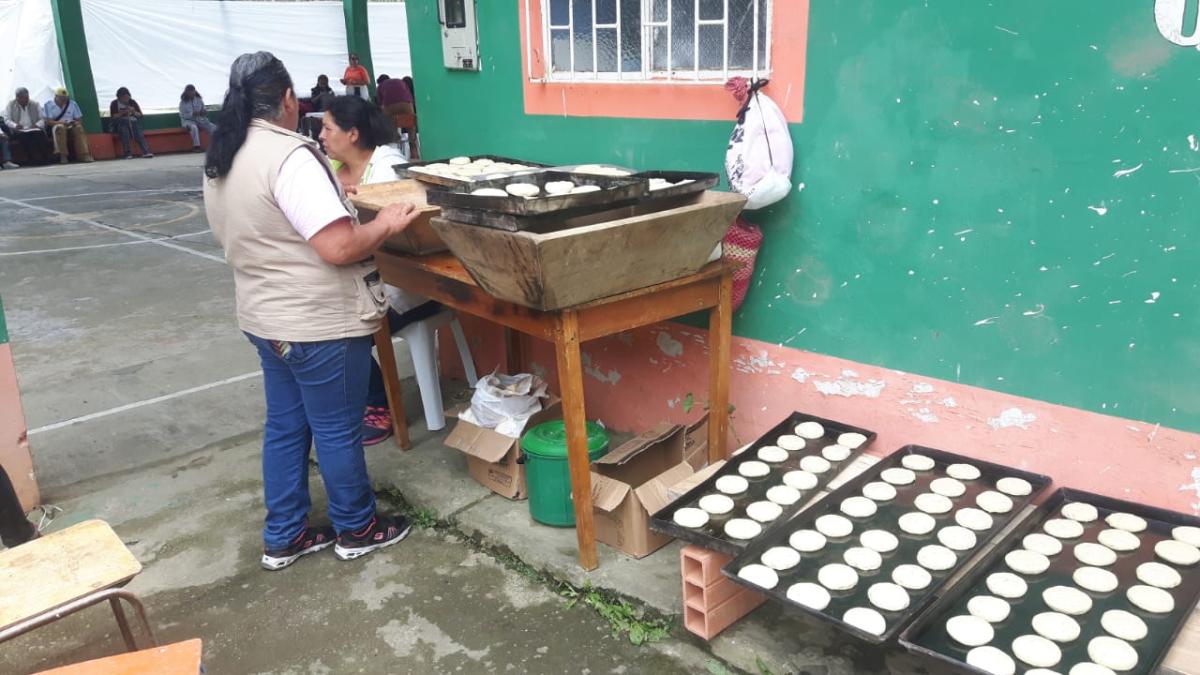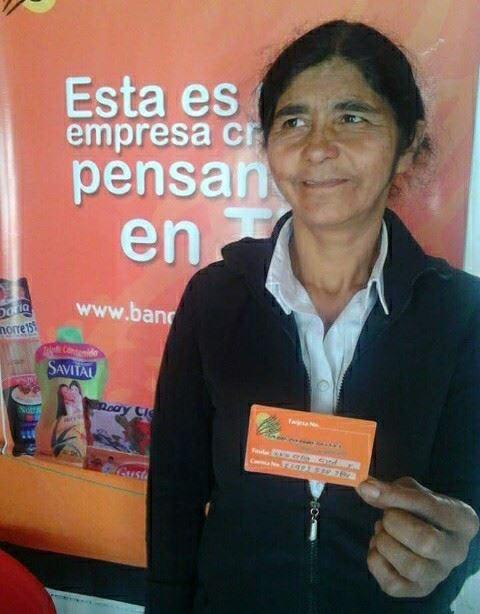Recycling Empowers Rural Populations to Overcome Poverty and Food Insecurity
Social Enterprise breaking the cycle of poverty in rural Colombia by exchanging recyclable waste for essential household goods such as food, medicine and agricultural inputs
Boyaca, Colombia, November 19, 2018 /3BL Media/ - Bancalimentos, a social enterprise that exchanges recyclable goods for essential household goods with vulnerable rural populations in Boyaca, Colombia, joins Business Call to Action (BCtA) with a commitment to increase food security and generate sustainable incomes for 12,500 people by 2022. Established in 2015, Bancalimentos provides essential household goods such as food, medicine and agricultural inputs in exchange for household organic waste and recyclables.
Launched in 2008, BCtA aims to accelerate progress towards the Sustainable Development Goals (SDGs) by challenging companies to develop inclusive business models that engage people with less than US$10 per day in purchasing power (in 2015 dollars) as consumers, producers, suppliers and distributors. It is supported by several international organizations and hosted by the United Nations Development Programme (UNDP).
In rural Colombia, low income rural communities are made vulnerable by food insecurity and a lack of economic opportunities. It is common that families do not have access to a sustainable and secure supply of basic household foods and medicine. Additionally, poor waste management infrastructure has created environmental and health risks for those in living on the bottom of the economic pyramid.
Bancalimentos’ innovative business model addresses each of these issues by creating a circular economy where the social enterprise buys household waste from participating families, and then sells it as raw material to the local recycling industry. Bancalimentos then purchases large volumes of food, medicine and other basic goods that are sold back to rural communities at affordable prices.
By doing this, Bancalimentos not only provides a sustainable and low-cost source of basic household items and a nutritional insurance, but it also encourages a change of habits in waste disposal and contributes to improved living environment, emissions reductions and recycling infrastructure.
Bancalimentos aims to give its customers an opportunity to participate in the economy and the banking system by registering each customer with a savings account. Clients can deposit their household waste such as plastic bottles and glass at various Bancalimentos locations, strategically placed around the municipality of Boyaca. Each waste deposit will add to the balance on the customer’s savings account, which they can use to purchase nutritious food, agricultural products, medicine and some essential services.
Bancalimentos has progressively created a series of products and services for its customers, always based on local needs and considering the company's objective of providing food and nutritional security for its customers in rural areas. The social enterprise has improved the lives of its clients, who report being more optimistic and productive, having better interpersonal relationships, being able to feed their children more balanced diets thus reducing malnutrition rates, and experiencing reduced violence and displacement.
The innovation of Bancalimentos is also reflected in their 22 distribution points, which are all managed by local women. Eighty-five percent of Bancalimentos’ clients are female heads of household benefit from being able to convert waste into income, and can access a comprehensive range of products at a fair price without having to travel long distances. The empowerment of women through the generation of real purchasing power and access to food has been highly effective.
“The loyalty of our customers have always been – and still are – the most important asset of our company, as our business model was developed by and for the rural populations with limited access to basic goods and services. Generating empathy and trust among our customers as well as expanding our line of products and services will allow us to scale up in other regions,” Bancalimentos CEO Olga Yanneth Bocarejo Buitrago said.
“Bancalimentos is an excellent example of an inclusive social enterprise that is using an innovative approach to partnerships with the local industry to deliver positive outcomes. Bancalimentos’ service is not only filling a gap in the market but also empowering women as franchisees and generating positive health outcomes for generations to come,” said Paula Pelaez, Head of Business Call to Action.
For Further information
BCtA: bcta.secretariat@undp.org
Bancalimentos: gerentebanca@gmail.com
BCtA membership does not constitute a partnership with its funding and programme partners, UNDP or any UN agency.
About Business Call to Action (BCtA)
Launched at the United Nations in 2008, BCtA aims to accelerate progress towards the Sustainable Development Goals (SDGs) by challenging companies to develop inclusive business models that offer the potential for both commercial success and development impact. BCtA is a unique multilateral alliance between key donor governments including the Dutch Ministry of Foreign Affairs, Swedish International Development Cooperation Agency (Sida), Swiss Agency for Development and Cooperation, UK Department for International Development and the United Nations Development Programme — which hosts the secretariat. For more information, please visit www.businesscalltoaction.org or on Twitter at @BCtAInitiative.
About Bancalimentos
Bancalimentos is a social enterprise, developed by and for rural base of the pyramid populations in the Department of Boyaca, that provides commodities to rural families, such as medicines, agricultural inputs, staple foods as well as other services such as microcredit in exchange for organic waste and recyclables. Bancalimentos then sells the gathered trash as raw material to the recycling industry, and with the financial return purchases large volumes of basic food, medicines and other basic goods that are then sold at affordable prices to rural BdP populations.


